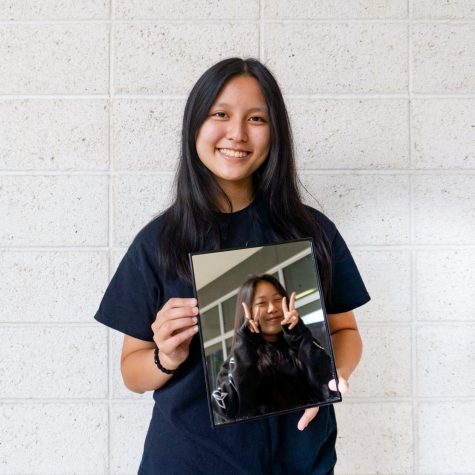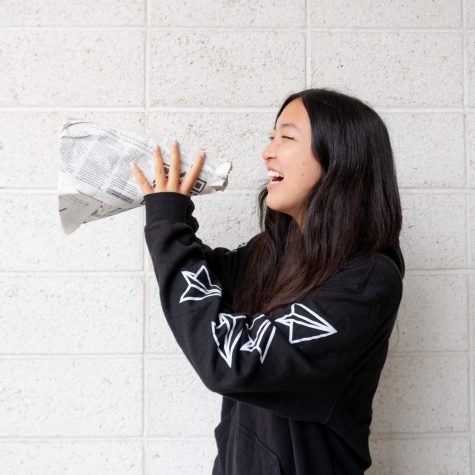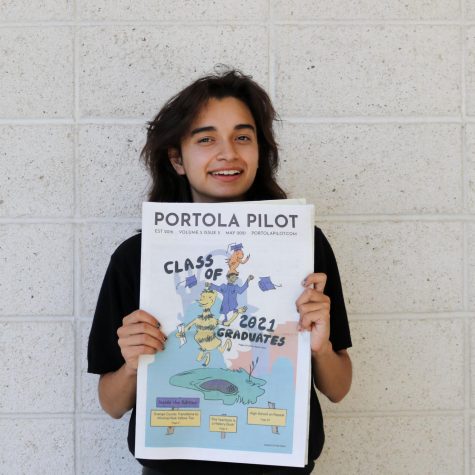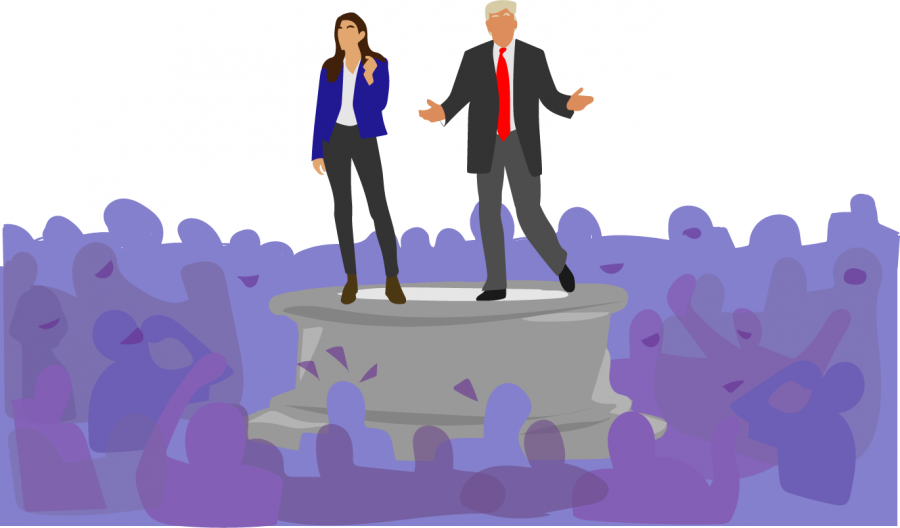American Politicians should not be American Idols
Rep. Alexandria Ocasio-Cortez and former President Donald Trump, two of the most prominent politicians who have been idolized, regularly used social media sites like Twitter to communicate with their constituents, according to the Washington Post. These interactions lend themselves to the creation of online personas that attract Americans.
Scrolling through social media, it is not difficult to find video compilations of Rep. Alexandria Ocasio-Cortez playing “Among Us” with famous Twitch streamers or memes featuring Sen. Bernie Sanders. On any given day, it is almost impossible to scroll through social media without landing on content that paints politicians in a relatable or glorifying manner.
As the line separating popular culture from politics dissipates, more social media users have developed a mentality that causes them to “stan,” or obsess over, politicians, resulting in clouded judgement. Worshipping politicians becomes a danger when it hinders people’s abilities to hold politicians accountable when they do fail or make policy decisions that gravely affect their communities.
“Citizens may be the ones creating material about the candidates, but they are also helping to build cults of personality around politicians that erode their accountability,” journalist Amanda Hess wrote in an article for the New York Times. “Fandoms are fundamentally about promoting their central celebrity, not holding them to account. Our political representatives are supposed to work for the people, but fandoms reverse that proposition: They make us work for them.”
According to the Washington Post, Ocasio-Cortez streamed “Among Us” with other popular streamers during the last election season in an attempt to convince younger voters to head to the polling stations. The stream garnered 438,000 views and a growing fandom for Ocasio-Cortez. Through this simple act of playing a video game, Ocasio-Cortez was able to continue to present herself as a young icon rather than a politician. The Twitter fancams that focused on her relatability, rather than her discussions regarding voting, that were created shortly after, as reported by the Guardian, are a testament to that.
However, the worshipping of politicians is an issue that members of both parties are guilty of. In some circumstances, the consequences can be far more weighty than that of a seemingly harmless meme.
“I feel like if you’re stanning Donald Trump, for example, our former president, people are very prone to degrading the other side, degrading other people,” freshman Vismaya Sista said. “While if you’re on the liberal side of things, you’re stanning people like AOC, Joe Biden, and that also makes you prone to just calling people who support Donald Trump ‘bad.’ And I feel like stanning a specific politician just brings out the bad in people.”
The Capitol insurrection that occurred on Jan. 6 was caused by a group of citizens who fervently believed that the November election was rigged and that Trump was the true winner. According to an article by the Guardian, it was more so these rioters’ willingness to follow the words of an idolized politician, rather than a genuine belief in the cause, that prompted them to take violent measures. Through this incident, it is clear that the idolization of politicians poses a threat to society: it is an issue that can go beyond simply “stanning” politicians on TikTok or Twitter.
Although it is acceptable to have role models, it is important to pursue credible research and articles that effectively emphasize policies before the politicians themselves. Without this due diligence, Americans are putting their politicians on pedestals, running the risk of losing the ability to hold them accountable.
Your donation will support the student journalists of Portola High School. Your contribution will allow us to purchase equipment and cover our annual website hosting costs.

Charlotte Cao is the Features Editor for her third and, unfortunately, final year on the Pilot. Whether it be through the co-writing of stories or during...

Claudia Lin is your co-editor-in-chief for her third year on the Pilot. She is looking forward to making as many memories as possible for her last year...

Nate Taylor is the 2021-22 front page editor and photo editor. He is ready to improve his design skills and create memorable Portola Pilot front covers....




